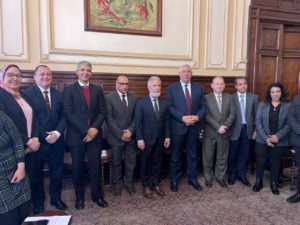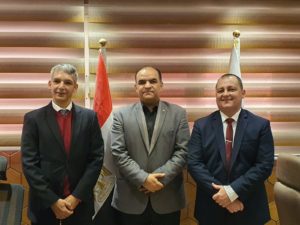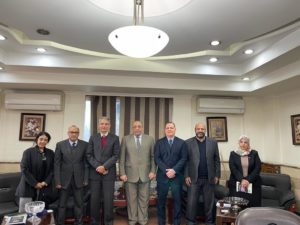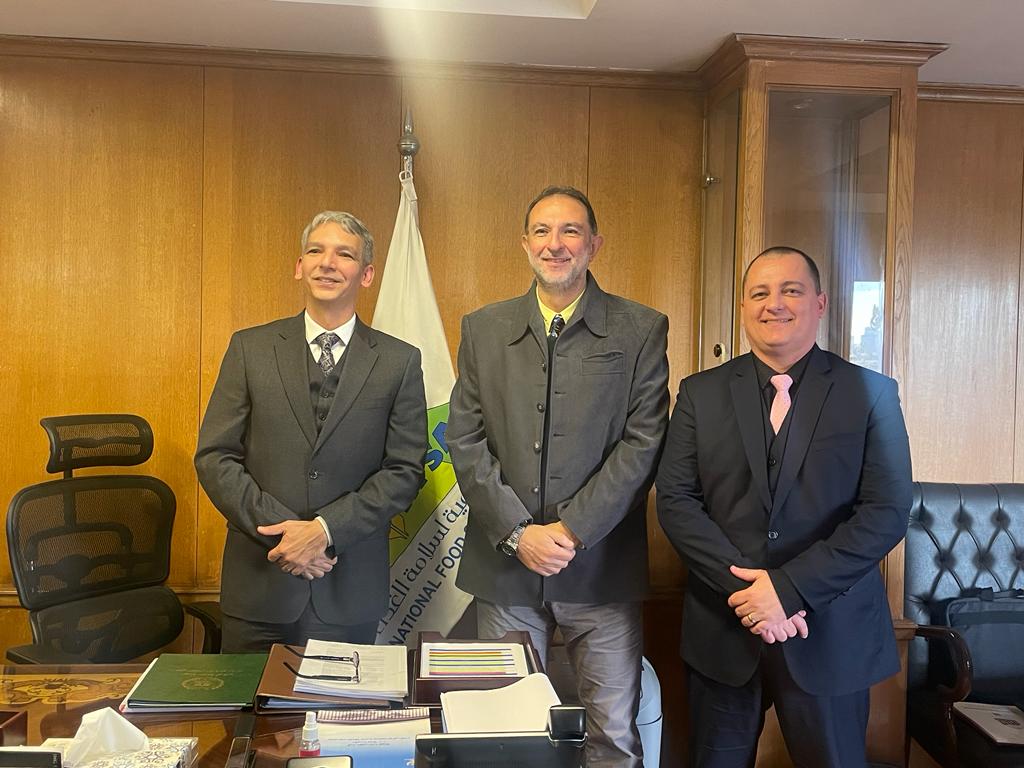São Paulo – In recent years, Egypt and Brazil have developed different trade possibilities in both directions. Among the factors that boosted the balance on both ends, one of the most symbolic was the free trade agreement between the Arab country and Mercosur.
In 2018, Brazil started having an agricultural attaché in the Egyptian capital. It was the first time the country had that position in Egypt. Now, Cesar Simas Teles is ending his mission and passing the task to Rafael Mohana, the new Brazilian agricultural attaché to Cairo. “When I arrived, there was a demand for opening markets. I delved into this situation and started building connections; as I have a technical background, I was able to approach Egyptian technical parties,” explained Teles.
Read also:
- Arab demand freshens up outlook for sheep, goat industry
- Egyptian company ships citrus fruits to Brazil
In these four years, the embassy of Brazil to Cairo received delegations from the Brazilian Ministry of Agriculture, Livestock, and Food Supply (MAPA), headed by ministers Tereza Cristina and Marcos Montes. In the same period, new markets were opened. In the case of Brazilian exports to Egypt, shipments of dairy products, goats, and sheep were approved. Regarding goat and sheep livestock, the aim is for reproduction and improving Egyptian breeds. On the Egyptian side, there was a demand to open the market for garlic and citrus fruits, which was accomplished.

Another achievement was the qualification of 42 new animal protein processing plants producing beef and poultry bound to the Arab country. “During this period, we also managed to expand the number of products. We were already exporting beef, and we extended certification to allow beef liver shipments. It is a very important market. In Egypt alone, it is worth around USD 200 million. There is still a preponderance of supplies from the United States, but Brazil is growing in this sector,” said Teles.
Other advancements were in processed products, such as nuggets and sausage. Concerning vegetables, there were efforts to encourage the export of seeds. “Around 2021, we started carrying out the first tests with the Egyptian MOA with seeds such as tomato, bell pepper, cucumber, and carrot. We already have Brazilian companies registering to sell tomato seeds to Egypt,” he exemplified.

Other achievements were opening cotton lint and Brazilian banana exports to the Egyptians. “Brazil is already exporting bananas. We are in the test phase. As of May, the forecast is to expand to a much larger volume. It is a market worth USD 7 to 8 million annually, and fruits come mainly from Ecuador. But with the Mercosur-Egypt agreement, Brazil has the prospect of expanding its stake and dominating the market in two years. We have a competitive edge; while Ecuador’s tariff is at 60%, Brazil’s is at 5%. And in these two years, due to the agreement, it will become tax-free,” explained Teles.
Read more:
- Brazil seeks to sell cotton to Egypt as market opens
- Brazilian açaí arrives at Egyptian retail and foodservice
Transition
Now, the two executives are in a transition period. With Mohana’s arrival, he and Teles met with officials to introduce the new attaché. This transition period is new for the position, and the two believe the possibility of passing the task in face-to-face meetings will help maintain the connections already established.

The attachés schedule already had a meeting with the minister of Agriculture and Land Recovery of Egypt, Mohamed Sayed El-Quseir, who received them and the Brazilian ambassador to Cairo, Antonio Patriota. Talks with authorities such as heads of the Egyptian Food Safety Authority (NFSA), Tareq El-Houby; Egyptian General Organization Of Veterinary Services (GOVS), Ihab Saber Yousef; Egyptian Plant Quarantine, Ahmed Kamal El-Attar; and the Arab Brazilian Chamber of Commerce (ABCC) office in Cairo staff also occurred.
Rafael Mohana has 15 years of expertise with MAPA. Holding an undergraduate degree in Veterinary Medicine, he worked in the technical divisions of beef, health certification, and animal feed inspection. In 2019, he started working with the Secretariat for Trade and International Relations of MAPA, heading the Coordination of Bilateral Affairs. “I had close contact with the agricultural attachés who work bilateral jobs. It was an excellent opportunity to exchange knowledge and learn about the position. That experience contributed to my decision to become an attaché,” he said.

For the new attaché, the work will be focused on agricultural matters. “And the proof is all these superb results. Opening up markets, bringing missions, and also finding Egyptian products in Brazil. It’s a two-way relationship,” said Mohana.
Among the outlined goals, the executive mentioned dairy exports from Brazil to Egypt and stimuli to sectors such as specialty coffees, pet food, animal feed inputs, and genetics from different species. In addition, he cited the intention to keep participating in shows such as Food Africa and the promotion of Brazilian biodiversity products, such as açaí.
Translated by Elúsio Brasileiro




